



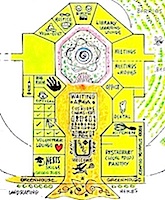


 |
 |
 |
 |
 |
  |
| PAUL
GLOVER ESSAYS: community
control of food, fuel, housing, health care,
planning, education, finance. |
| HOME | INTRO | CURRENCY | SUCCESSES | HOW-TO BOOK | PUBLICITY | ESSAYS |
|
Measuring
Immeasurable Change by Paul Glover, July 2012 "We at Ethical Markets are happy to Publish this original article by Paul Glover, one of the true pioneers of local development and true wealth and sustainable communities," Hazel Henderson, - Editor For 222 years, American stock exchanges have measured success by larger numbers, regardless of capital's social and environmental impact. The bottom line has been the top line. During recent decades, though, corporations have been kicked from behind by vigilant citizens demanding government regulations, then nudged from within by pioneering capitalists who actually cared about planet or nation. Responding to market pressures and to enlightened self-interest, corporations have hired an army of sustainability managers. These folks are tasked to reduce the costs of wasted energy, pollution, and/or public disgust. Sustainable Brands http://www.sustainablebrands.com promotes corporate greening by gathering such managers at its New Metrics conferences. The Philadelphia event in September showcased fifty consultants, portfolio experts, accountants, professors, business reporters, financial innovators, and public relations officers. Attending were 100 more. Nearly all seemed to be sincere environmentalists, committed to steering their Titanics from icebergs. Some admitted that their company was itself an iceberg, while others were bold green washers. They spoke of new standards, new targets and thresholds, seeking "effectiveness" above mere efficiency, developing scenarios rather than calculating ratios, aiming for net positive impact. They described the challenge of communicating these to CFOs and accountants. Doing so requires imaginative spread sheets and relevant new databases. "What gets measured gets managed," said Steve Lydenberg of Domini Social Investments. | Presentations focused upon environmental concerns rather than social justice. Large corporations, by their nature, seek to dominate using both carrot and stick, and this confronts local control of economies. The most enlightened chain stores, for example, shift community wealth and job creation from neighborhoods to skyscrapers. Likewise, emphasis on product integrity is eclipsed as investment shifts from tangibles (83% in 1975) to speculation (80% today). Even Wal-Mart's Sustainability Manager acknowledged that her company is evolving beyond sales of products toward banking services. The future of sustainable economies, and of civilizations, will need more than new products and new metrics. They'll need new regional co-operative or nonprofit enterprises that place direct control of the economy amid those most urgently needing basic security. As editor of Green Jobs Philly News, I've featured hundreds such initiatives from this rusty metropolis. http://www.greenjobsphilly.org/news Most ambitiously, effective new metrics will require new money dedicated to essential change- money that's issued interest-free and backed by skills and tools explicitly to meet urgent needs for clean water, fresh local food, health care and creative labor. Money that's dedicated to the next Century rather than the next Quarter. http://www.paulglover.org/1107.html Genuinely sustainable corporations will adjust their ambitions and ledgers to serve this future. Glover is founder of 18 community organizations and campaigns, and author of several books on regional economic development http://www.paulglover.org/books.html |
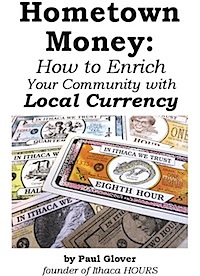 |
 |
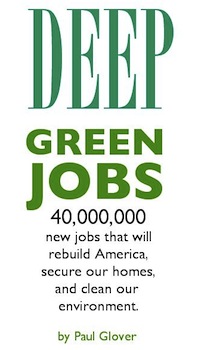 |
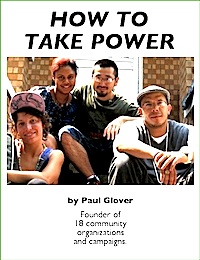 |
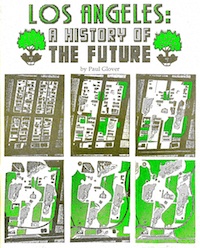 |
 |